- Home
- Susan Hill
A Question of Identity Page 2
A Question of Identity Read online
Page 2
Page 2
‘I suppose it is. Only I’m still telling you that they pushed me . . . the detectives. They persuaded me I was doing the right thing. ’
24 MAY, 2002
‘Will the next witness take the stand please?’
A thin woman, early thirties, worn-looking. Hair tied back, blonde with streaks. Strong black eyeliner.
Clerk to the court: ‘Will you please state your name?’
‘Lynne Margaret Keyes. ’
Mr Anthony Elrod: ‘You are the wife of the defendant, are you not?’
‘Yes. ’
Eyes on anyone, anything, but not once on him.
‘Will you please tell the court where you were on the night of 17 July 2001 between the hours of midnight and 6 a. m. ?’
‘At home in bed. ’
‘Do you know where the defendant was at the same time?’
‘I’ve said to the police. It’s in my statement. He was at home in bed with me. ’
‘So the defendant’s alibi for the night of 17 July was that he was at home, in bed, with you? Do you also confirm that you were at home in bed with the defendant on the nights of 30 July and 4 August 2001 between midnight and 6 a. m. ?’
‘Yes. ’
‘Do you and your husband share a bed?’
‘Of course we do. ’
‘Always?’
‘What do you mean, always?’
‘Sometimes married couples have a spare room and one of them may sleep there if, say, they are ill or returning home very late? It’s not uncommon. ’
‘I wouldn’t know. ’
‘Are you a sound sleeper, Mrs Keyes? Or do you wake in the night sometimes?’
‘No. I work hard. I’m shattered. I never wake up. ’
‘What work do you do?’
‘I work in a dry cleaner’s. ’
‘I suppose the fumes from the cleaning machines are likely to make you sleepy, aren’t they?’
Mr Jeremy Brockyear: ‘Your Honour, I object strongly to the implication behind this question which is completely irrelevant to –’
Judge Palmer: ‘I agree. Mr Elrod, please stick to facts not speculation about fumes and machines. ’
Mr Anthony Elrod: ‘Is the defendant a good sleeper as well?’
‘Yes. Never stirs. ’
‘How can you be sure? If you sleep so soundly yourself, as you have just told us, how do you know that he’s doing the same? How can you be sure he hasn’t got up and made himself a cup of tea?’
‘Oh, I’m sure of that all right. If he wanted tea he’d wake me up and ask me to get it. ’
‘And would you?’
‘Of course I would. ’
‘Isn’t that a bit unusual these days? For a wife to get up in the middle of the night and make tea for her husband if he wants it, even though she has just been sound asleep? Wouldn’t most men these days get their own tea?’
‘He’s not most men. ’
‘Can you explain what you mean by that?’
‘Your Honour, I object –’
‘Wait a moment, Mr Brockyear. Mr Elrod, I hope this line of questioning has a relevant point because it sounds dangerously like vague speculation about the nature of the population at large. ’
‘I’m coming to the point now, Your Honour. ’
‘Then please do so. ’
‘Mrs Keyes, have you ever refused to make tea when your husband demanded it – in the middle of the night?’
‘No. ’
‘Has he demanded it?’
‘No. I said. He sleeps as good as I do. ’
‘Does your husband snore?’
‘Yes, like bloody roadworks. ’
‘How do you know?’
‘I can hear him in my sleep. ’
‘I see. Would you be aware of it if he got out of bed in the middle of the night and went to the bathroom?’
‘I don’t know. No, I probably wouldn’t unless he put the light on. ’
‘And would he do that? Put the light on?’
‘Shouldn’t think so. ’
‘So he could get out of bed, leave your bedroom, go to the bathroom, come back, get into bed again – and you would never know it?’
‘I probably wouldn’t, no. ’
‘You probably wouldn’t know that he had been up? Have you ever woken because he’d gone in and out of the room?’
‘Not – if I have it’s not for years. I told you, I’m –’
‘. . . a very deep sleeper. Yes. So if he were not only to get out of bed and leave the room in the middle of the night, but go downstairs, open the door and leave the house altogether, you wouldn’t be aware of that either?’
‘No. I –’
‘I put it to you that in fact he did exactly that three times, on the nights in question, when you have stated that the accused was at home in bed with you. He got up and left the house and went out to commit three terrible murders of three innocent elderly women. He left you sound asleep and he returned later, got back into bed and you were still asleep – because you sleep well, as you have told us. You knew nothing else. Because you were undisturbed by his comings and goings. Isn’t that why your evidence is flawed? Why there has to be considerable doubt about its reliability? I am not accusing you of giving false evidence, Mrs Keyes. You are under oath and you know it. No, your evidence is not reliable and the alibi you have given to the accused is not reliable because when he left the house and returned on those nights, you were sound asleep. Isn’t this the case?’
‘I don’t know. ’
‘Mrs Keyes, will you look at the accused please?’
‘Your Honour, I . . . ’
Judge Palmer: ‘Do you have a good reason for that request, Mr Elrod?’
‘I do, Your Honour, if you will allow me. ’
Judge Palmer: ‘Objection overruled. There is no reason why the witness should not be asked to look at the accused. He is her husband, after all. ’
‘Thank you, Your Honour. Mrs Keyes, will you please look at the accused? No, not a swift glance. Please look at him steadily. You seem nervous. Are you? Are you afraid of your husband, Mrs Keyes?’
‘Your Hon–’
Judge Palmer: ‘No, Mr Brockyear, sit down. Carry on, Mr Elrod. ’
‘Mrs Keyes, you obviously have difficulty answering that question, just as you had difficulty looking steadily at the accused. I put it to you that you are afraid of him – very afraid. That you have been afraid of him for a long time and that if you had not given him an alibi for the nights of 17 July, 30 July and 4 August 2001, you were afraid – terrified – of his reaction. He told you what to say and you said it. You know perfectly well that he got up and went out on those nights. You didn’t know why but you would never ask. You covered for the accused because you were and you are afraid of what he would do to you if you did not. Isn’t that the truth, Mrs Keyes? You are quite safe. You can say yes without looking at him now. Isn’t that the truth?’
‘Yes. ’
‘I’m sorry, I can barely hear you, Mrs Keyes, and I doubt if the rest of the court, and especially the jury, could either. Will you please speak up and answer again?’
A long hesitation.
‘Yes. ’
From the Daily Telegraph, 28 May, 2002
Alan Frederick Keyes is alleged to have slipped out late at night, leaving his wife asleep, and made his way on foot and without use of a torch to the complex of sheltered bungalows collectively known as Meadow View Close which lies about a mile and a half from his home at 33 Westway Road, Crofton. He was familiar with the bungalows because he had worked there several times as a builder, and has occasionally been called out to them at weekends and bank holidays to do urgent repairs.
Keyes is charged with the murders of Carrie Millicent Gage (88), Sara Pearce (76) and Angela Daphne Kavanagh (80), all of whom lived near to one another in the complex. Mr Anthony Elrod QC, prosecuti
ng, said that Keyes had known precisely where to go, how to gain entrance to the bungalows, and how to cover his tracks and destroy any traces of his presence on the three nights. He had entered the bedrooms of Carrie Gage and Angela Kavanagh and strangled them. Sara Pearce was suffering from a chest cold and had been finding it difficult to sleep lying down and Keyes had found her sitting in an armchair in the living room.
Keyes overpowered these elderly ladies without any difficulty, but there was evidence that Angela Kavanagh had fought for her life and Keyes had to use some force to kill her.
Mr Elrod said: ‘You deliberately and callously, and with meticulous planning, went out to the bungalows belonging to these elderly women who, although they all lived alone, thought they were safe in their beds in a secure environment. You used previous knowledge of the layouts to enter each one and find each of the victims. You then strangled them without reason, motive or remorse, and left them to be discovered by their traumatised neighbours the next or on a subsequent day. You took care to destroy all evidence of your presence and left the complex to walk back through the dark and deserted streets to your own house. There you let yourself in, and went back to bed beside your still-sleeping wife. These are terrible, wicked acts of which you are accused. But you have lied consistently during every questioning, you have shown not only no remorse but, unbelievably, barely any interest in these events. You ostentatiously yawned your way through at least one cross-examination, and at several points, on hearing the details of these dreadful murders which you had so calmly committed, you smiled. I hope the minds of the jury are concentrating hard upon that, as well as upon all the other facts because they beggar belief. ’
The trial continues.
The best one was the one in the chair. The one who was already awake. That was the best, no question.
29 MAY, 2002
‘WHAT DO YOU reckon?’
It was warm outside, sun, blue sky. The trees round the perimeter of the Crown Court building were bright fresh green.
Charlie Vogt and Rod Hawkins sat on a low wall out of the press of people near the main doors, with plastic cups of coffee and Hawkins with his usual hand-rolled. Charlie was local, Rod Hawkins senior crime reporter for the Mail. They went back a decade, to the dilapidated old Crown Court building in Barnsley Square and several high-profile murder trials, but this was the biggest here for some years. Television, radio, every national paper as well as the agencies and the regional press were represented, a couple were doing updates as the trial had rolled on. They were nearing the end now, prosecution and defence had put their cases, the judge had summed up and instructed the jury, who had gone out the previous afternoon, and were still out. It was twenty minutes to three.
Charlie swigged his coffee. ‘I reckon the same as you reckon, don’t I?’
‘I reckon you do. ’
‘Felt sorry for the defence – but then you always do in these open-and-shut jobs. Hiding to nothing. ’
‘Didn’t think he was that strong actually. ’
‘Oh come on, he saw the forensics woman off a treat. Love it when they pull bloody experts apart. ’
‘“Dr Culshaw, would you please tell the court on what basis you and your expert colleagues have decided that the odds of the DNA from samples from the accused and the cat is one in two hundred million? How many feline DNA samples have been tested?”’
‘“Members of the jury, can you be certain, beyond all reasonable doubt, that you can rely on this new, emerging and so far unproven and previously untested type of evidence? If you cannot then you are under a duty to acquit. ”’
Rod dragged on the last of his disintegrating roll-up. ‘Right, that was a good left hook on one dodgy expert . . . come on. ’
‘Oh I know, I know. He’s guilty as hell, I just like it when I see a defence come out fighting. He had her in a corner. ’
‘Bugger it though, Charlie . . . you got any elderly rellies?’
‘Nah. My mum died ten years ago, breast cancer, Dad remarried, lives in Tenerife. You?’
‘Too right I have, my mum is eighty-one, her sisters are, what, eighty and eighty-three, something like that, and they’re looking to sheltered housing, got their names on lists. We’ve encouraged it – there are some smashing places not far from Pete and me, we’d make sure Mum and Aunt Lil were all right – the other’s up in Liverpool. But now what? The old girls are out of their minds with fretting about all this and I don’t blame them. Think about it. Locked and bolted, alarm by the bed, all tucked up and he slides in through the bedroom window, not a peep . . . ’
‘What do you reckon about the wife?’
‘Shitting herself, what else?’
‘I bet there’s a record somewhere – she rang the emergencies when he’d been having a go. She’s terrified of him. ’
‘Weasely little bugger as well. ’
‘Not sure I agree . . . Easy to read something into how they look when you know they’ve murdered old ladies but he’s not that bad-looking actually. He’s not stupid either. ’
‘Psychopaths aren’t stupid. ’
‘Is he one?’
‘Murdering three defenceless old women in their beds without any motive other than his own sick enjoyment? Not a psychopath?’
‘Take your point. I wonder how it started? Where do these things start? Nothing – then three in a row. Come on! Got to be more to it. ’
‘Something back then. Always is. He had a witch for a gran. That’s what he’ll come up with, on appeal. ’
‘No chance. ’
‘None. You know, doing this job, you get a bit blasé. ’
Rod shook his head. ‘There’s always one though. ’
‘That’s what I mean. You get blasé until someone like Keyes comes along and you get the creeps just looking at him, knowing what he’s done, hearing it all. You never get used to the worst of them. ’
‘My dad did this job. Sat through the whole Moors murderers trial for the News and Star. It did for him. He said he knew he’d never get it out of his head. He used to brood about it. Really did for him. ’
‘I bet. Jeez. ’
‘They’re going back in . . . ’
Rod crushed his plastic cup and threw it in a bin as they walked towards the steps. People were pushing back through the doors, relatives of the dead women easily picked out by the way they hung back in separate little groups, by the dead look in their eyes, the way it had left its marks on their faces. Grey-suited CID, having a last quick drag on a cigarette. The press pack, trying to stay near the back, ready to exit fast and phone in the verdict when it came.

 Mrs De Winter
Mrs De Winter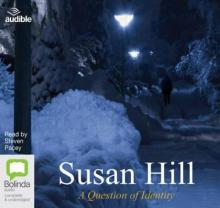 A Question of Identity
A Question of Identity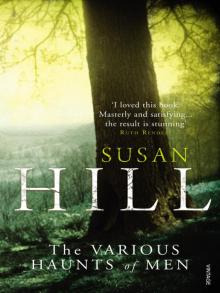 The Various Haunts of Men
The Various Haunts of Men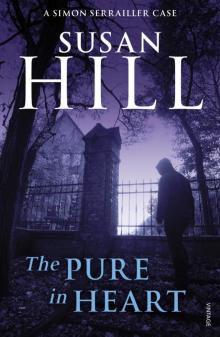 The Pure in Heart
The Pure in Heart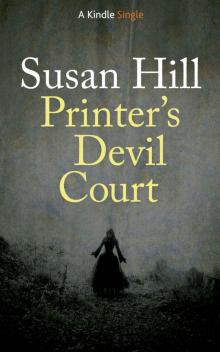 Printer's Devil Court
Printer's Devil Court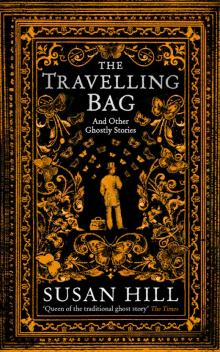 The Travelling Bag
The Travelling Bag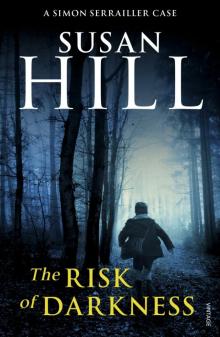 The Risk of Darkness
The Risk of Darkness A Kind Man
A Kind Man Black Sheep
Black Sheep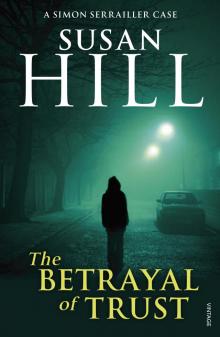 The Betrayal of Trust
The Betrayal of Trust The Service of Clouds
The Service of Clouds Betrayal of Trust
Betrayal of Trust The Small Hand
The Small Hand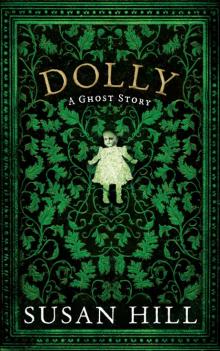 Dolly
Dolly Jacob's Room Is Full of Books: A Year of Reading
Jacob's Room Is Full of Books: A Year of Reading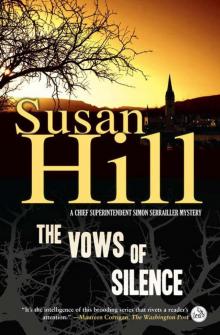 The Vows of Silence
The Vows of Silence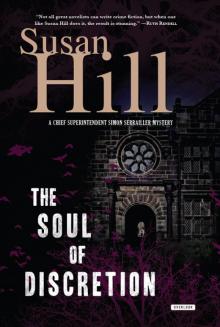 The Soul of Discretion
The Soul of Discretion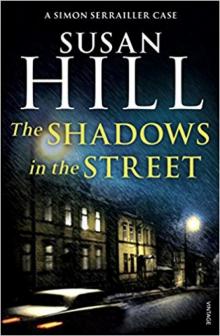 The Shadows in the Street
The Shadows in the Street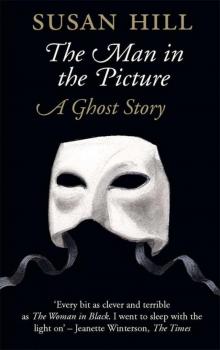 The Man in the Picture
The Man in the Picture Air and Angels
Air and Angels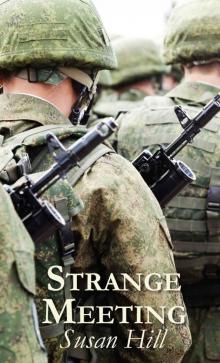 Strange Meeting
Strange Meeting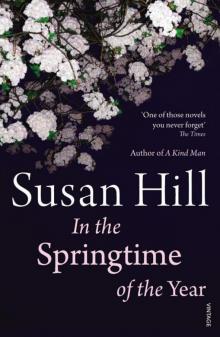 In the Springtime of the Year
In the Springtime of the Year Howards End Is on the Landing: A Year of Reading From Home
Howards End Is on the Landing: A Year of Reading From Home From the Heart
From the Heart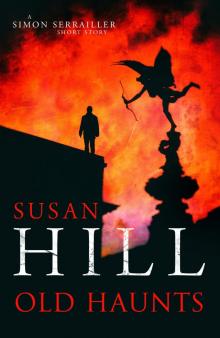 Old Haunts
Old Haunts The Mist in the Mirror
The Mist in the Mirror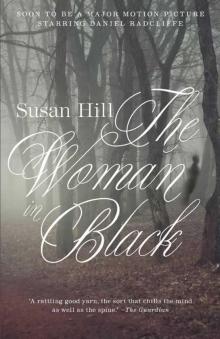 The Woman in Black: A Ghost Story
The Woman in Black: A Ghost Story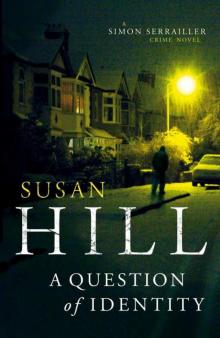 A Question of Identity (Simon Serrailler 7)
A Question of Identity (Simon Serrailler 7)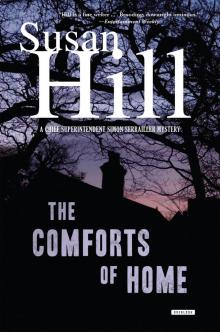 The Comforts of Home
The Comforts of Home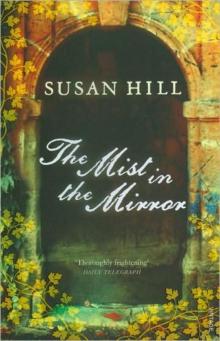 Mist in the Mirror
Mist in the Mirror Jacob's Room is Full of Books
Jacob's Room is Full of Books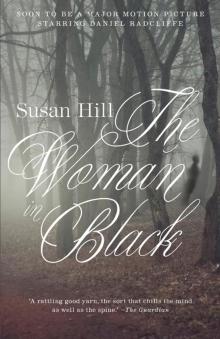 The Woman in Black
The Woman in Black Howards End is on the Landing
Howards End is on the Landing